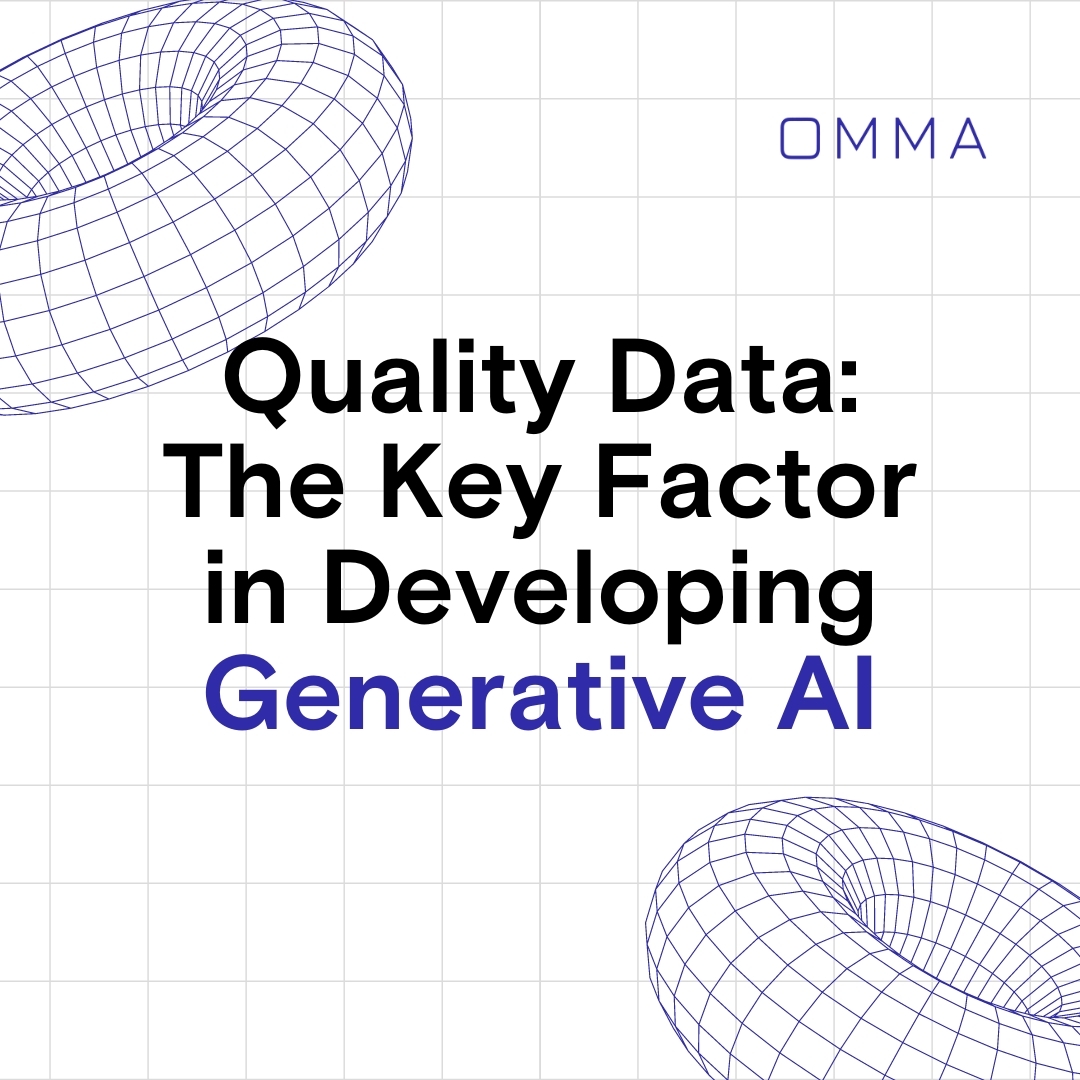The Key Factor in the Development of Generative AI
Generative AI is rapidly transforming data science and enhancing model performance. However, for data scientists working with private information, a key question arises: does Generative AI render traditional data quality practices obsolete?
The answer is no. While Generative AI offers significant benefits, maintaining information quality remains essential for several reasons.
Bad Data, Bad Outcomes
Generative AI models rely entirely on the data they receive. The quality of this data directly determines the quality of the results. If the data is biased or erroneous, these issues will be reflected in the generated outputs, leading to incorrect predictions and business decisions.
The Existing Problem of “No Quality”
Poor quality data can worsen with Generative AI. For instance, feeding a model with inconsistent customer data can result in incorrect segmentation, ineffective marketing campaigns, and ultimately, loss of revenue. Incorrect use of GAI can cause greater issues compared to traditional data analysis.
Validate to Ensure Data Accuracy and Reliability
Generative AI can create data that seems realistic, but it is crucial to remember that it is not “real” data. It is a simulation based on patterns learned from existing information. The challenge is to ensure that this data accurately reflects the complexities of your company’s private information. To achieve this, it is necessary to develop robust validation techniques with tools like OMMA data to evaluate the quality and representativeness of the data before integrating it into models.
Greater Accuracy, Better Results
Companies rely on AI for tasks such as customer segmentation, fraud detection, and product development. Inaccurate information can lead to wasted resources, missed opportunities, and even damage to a company’s reputation.
New Challenges in Data Quality
Generative AI can help address traditional data quality issues but also introduces new challenges. It is crucial to ensure that the information is realistic and captures the specific context of the company’s private data. For example, data for a financial services company must reflect industry-specific regulations and risk factors.
To work with private data and leverage the opportunities of Generative AI, a data quality-focused approach is necessary:
- Prioritise Data Quality: Invest in robust data cleaning and validation techniques to ensure data integrity before using it to train Generative AI models. Implement intuitive and effective data quality tools in your processes like OMMA.
- Commit to Validation: Develop rigorous methods to verify the quality and representativeness of the information before integrating it into your AI models. Collaborate with domain experts to ensure that the data reflects real-world scenarios and captures the specific context of your company.
- Combine Techniques: Integrate Generative AI with established data cleaning, validation, and governance processes for comprehensive data quality management.
How to Improve Your Data Quality
Even in the era of Generative AI, maintaining data quality is crucial for organisations. Some best practices include:
- Establish Data Quality Standards: Define clear criteria for data quality, including accuracy, integrity, consistency, and timeliness. Document these standards for data collection and processing.
- Data Profiling and Cleaning: Use profiling tools to identify anomalies and inconsistencies in the data, and apply cleaning processes to correct errors and improve accuracy.
- Automate Data Validation: Use automation tools to validate incoming data in real time, flagging discrepancies for immediate attention. In this link you can learn more about our product, OMMA.
- Implement a Data Governance Framework: Establish a robust framework to monitor data quality, defining roles, responsibilities, and processes for its management.
- Continuous Monitoring and Improvement: Set up a process for continuous monitoring of data quality metrics and implement ongoing improvements to maintain high standards.
Effective data quality management is key to providing accurate and reliable information that drives strategic decision-making. With OMMA, data quality can be evaluated in real time, enabling organisations to unlock the full potential of their data assets and gain a competitive edge in an increasingly data-centric market.


